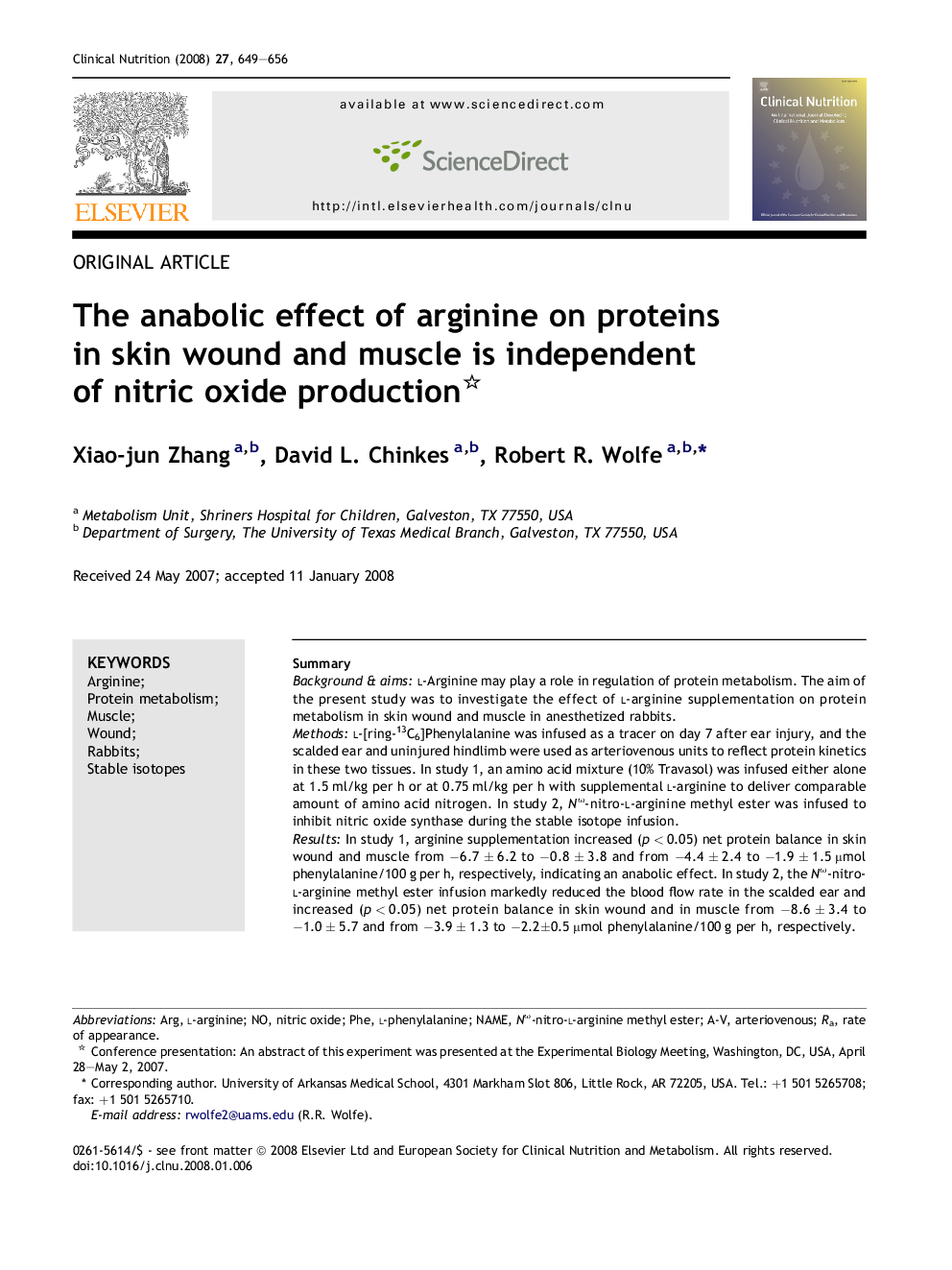| Article ID | Journal | Published Year | Pages | File Type |
|---|---|---|---|---|
| 2687607 | Clinical Nutrition | 2008 | 8 Pages |
SummaryBackground & aimsl-Arginine may play a role in regulation of protein metabolism. The aim of the present study was to investigate the effect of l-arginine supplementation on protein metabolism in skin wound and muscle in anesthetized rabbits.Methodsl-[ring-13C6]Phenylalanine was infused as a tracer on day 7 after ear injury, and the scalded ear and uninjured hindlimb were used as arteriovenous units to reflect protein kinetics in these two tissues. In study 1, an amino acid mixture (10% Travasol) was infused either alone at 1.5 ml/kg per h or at 0.75 ml/kg per h with supplemental l-arginine to deliver comparable amount of amino acid nitrogen. In study 2, Nω-nitro-l-arginine methyl ester was infused to inhibit nitric oxide synthase during the stable isotope infusion.ResultsIn study 1, arginine supplementation increased (p < 0.05) net protein balance in skin wound and muscle from −6.7 ± 6.2 to −0.8 ± 3.8 and from −4.4 ± 2.4 to −1.9 ± 1.5 μmol phenylalanine/100 g per h, respectively, indicating an anabolic effect. In study 2, the Nω-nitro-l-arginine methyl ester infusion markedly reduced the blood flow rate in the scalded ear and increased (p < 0.05) net protein balance in skin wound and in muscle from −8.6 ± 3.4 to −1.0 ± 5.7 and from −3.9 ± 1.3 to −2.2±0.5 μmol phenylalanine/100 g per h, respectively.ConclusionsArginine supplementation increased net protein balance in skin wound and muscle by a mechanism which was independent of nitric oxide production.
